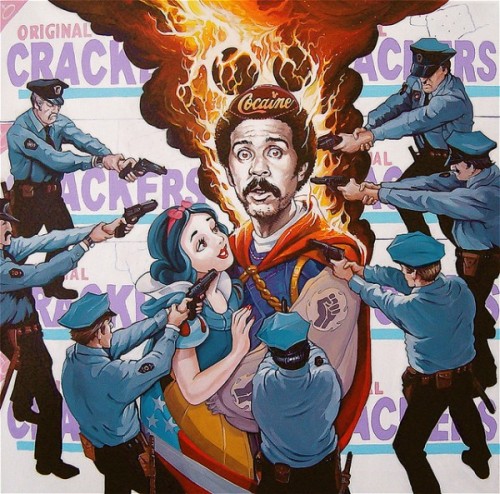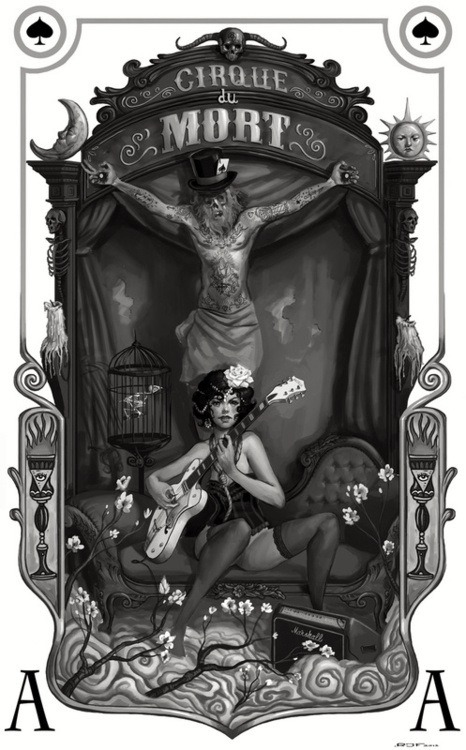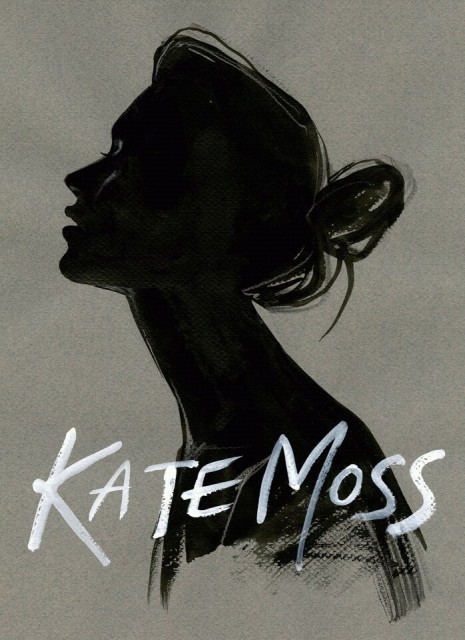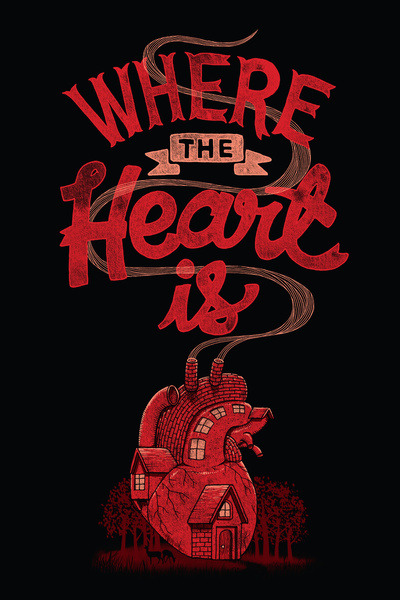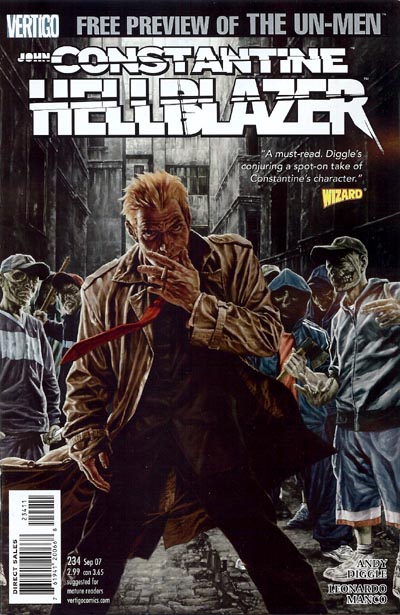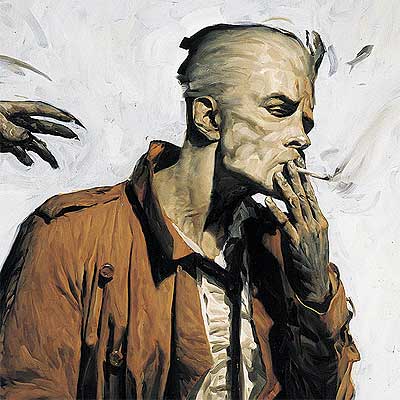
What is Movie News After Dark? It’s a nightly column that has been returned to the hands of its rightful owner, for now. But before we get to my triumphant return after a week of vegging out and eating BBQ, lets give a round of applause to Nathan Adams, Luke Mullen, Kate Erbland, Kevin Carr and Robert Fure, who did a wonderful job last week during guest week. I don’t know about you, but I lizzed a few times while reading their work. Lets hope that I can bring the same verve to this week’s return. We begin, of course, with naughty bits…
Several new images from Brian De Palma’s Passion this past week, courtesy of the Cannes Film Festival. That includes the above image, depicting a very devious, scantily clad Rachel McAdams burning a hole in my heart of hearts. It’s the eyes that do it. And the stockings. Definitely the stockings.
Over on his Candler Blog, Jonathan Poritsky explains why Aaron Sorkin is the right guy to pen a Steve Jobs biopic (that won’t star Ashton Kutcher). He goes well beyond my own general argument, that Aaron Sorkin is the right guy to pen just about any movie. Including Peter Berg’s upcoming Battleship sequel.
Over at The AV Club, Noel Murray finds unending ways to disappoint me. His review of Hysteria, a film about the birth of the vibrator (I told you this evening’s column would get naughty) is less than enthusiastic. It’s a brisk, entertaining read, but it doesn’t bode well for a film that I had high hopes for. Oh well, we’ll always have Maggie Gyllenhaal in Secretary.
Devin Faraci at Badass Digest writes long and hard about how The Avengers defeated irony and cynicism in its run toward being a billion dollar movie. As always, he delivers a great read, expounding upon all the ways that The Avengers has become one of the most positively charged ions in the atomic structure of cinema in years. It’s nice, this happiness and optimism.
Fact: I am absolutely in love with this latest Prometheus poster:

New Yorker film critic Richard Brody has submitted his list and reasoning for his part of the Sight & Sound Ten Greatest Films of All Time poll, citing the likes of The Great Dictator and Hitchcock’s Marnie. With his epic beard, Brody is not to be ignored. His list is also a great place to start filling up your Netflix queue.
The Atlantic has a great article from Jason Apuzzo and Govindini Murty about this summer’s battle between two ways of filming, a discussion about the high number of major summer films still being shot on film, rather than digital. This includes the two biggest films of summer, Joss Whedon’s The Avengers and Christopher Nolan’s The Dark Knight Rises.
As you may recall, we’ve mentioned the folks at Letterboxd numerous times. As a user of their service, I’m a big fan. Well, now it seems as if the community at Letterboxd is holding an online film festival using Netflix Instant to great a massive shared experience. With films like The Wind that Shakes the Barley and Transsiberian on the docket, there’s no way they’ll go wrong.
In an appearance at this past weekend’s Hero Complex Film Festival in LA, Peter Weller explained why modern movies can’t replicate the morality of Robocop. “It makes you laugh and cry and moves you, and it’s hysterical and horrible and all those unbelievable things at once.” Also, “Bitches leave…” (I added that last part).
The fine gentleman critic James Rocchi has been hard at work with his Cannes Diary, including an entry entitled How to Survive Cannes on Several Hundred Euros a Day, a great read for anyone interested in the way the job of film critic/blogger/psuedo-critic/non-critic works at a major festival on the other side of the big old ocean.
Nerdist’s Perry Michael Simon asks, Will You Watch a Dan Harmon-less Community? This is, of course, in response to the fact that Dan Harmon was unceremoniously let go from the popular show that he created late last week. Harmon followed the news with his own very humorous, heartfelt blog post on the matter. To answer the question: yes, I will still watch. But I will go into said viewings with the understanding that it probably won’t be the same. And that’s going to be sad.
Did you guys know that Steve Jobs was once a Ghostbuster? Well, sort of.
|
Face it, we all like a good lyrical smackdown, and the art of the kiss-off line (or, indeed, entire kiss-off song) is one of the most time-honored and enduring in music. Good kiss-offs can take many forms — they can be subtle and sarcastic, or blunt and brutal, or just flat-out hilarious. Either way, there have been many, many good ones committed to tape over the years, and we’ve always had an ear for a biting turn of phrase — so we’re counting down 30 of the best after the jump. As ever, we’re open to suggestions, so let us know your favorites!
30. Ween — “Piss Up a Rope”
The pitch-perfect country satire of 12 Golden Country Greats reached its zenith with “Piss Up a Rope.” The glory of this song is that it could quite happily be a genuine country song (in the vein of similar gems like Ray Stevens’ “Get Your Tongue Out of My Mouth, I’m Kissing You Goodbye”), albeit one full of Gene ‘n’ Deen’s, um, unique brand of humor.
Key lines: “For the last six months I’ve been packing your bag/ You can wash my balls with a warm wet rag/ ‘Til my balls feel smooth, and soft like silk/ I’m sick of your mouth and your 2% milk”
29. Nancy Sinatra — “These Boots Were Made For Walking”
And that’s just what they’ll do!
Key lines: “You keep samin’ when you oughta be changin’/ What’s right is right, but you ain’t been right yet”
28. The Shangri-Las — “He Cried”
Despite the Motown production sheen, this is a surprisingly brutal piece of work, and all the more so considering it was being sung by three girls still in their teens. Of course, teenage girls can be the bitchiest people on the planet, but still, there’s something disconcertingly cold-hearted about how dispassionately the Shangri-Las recount inflicting heartbreak.
Key lines: “I knew that our romance was over and done/ But for him it had just begun”
27. Rowland S. Howard — “I Burnt Your Clothes”
The late and great Rowland S. Howard included a reworking of “He Cried” on his 1999 masterpiece Teenage Snuff Film — right before this song, which is even more vicious (as its title might suggest). It’s Howard’s utter detachment that makes this so compelling — and all the more so because of the sense that he’s just as appalled by his actions as the listener is.
Key lines: “Guess what? I don’t care/ About who, or what, or when, or where/ And heaven knows/ I burnt your clothes”
26. Iggy and the Stooges — “I’m Sick of You”
For all Iggy’s reputation as a hellraiser, there was always plenty of humor in the Stooges’ work — and it’s in full effect in this song, a gloriously truculent farewell to monogamy and responsibility.
Key lines: “I’m sick of hanging around your pad/ I’m sick of your mum, and I’m sick of your dad”
25. Rufus Wainwright — “California”
Of course, kiss-offs don’t have to be directed at people — as Rufus Wainwright proves with this song, they can be directed at entire states. And no, we can’t really imagine Rufus fitting in on Venice Beach, either.
Key lines: “California/ You’re such a wonder/ That I think I’ll stay in bed”
24. Sebadoh — “The Freed Pig”
And, of course, they can be directed at former bandmates. By the sounds of this song, being in Dinosaur Jr with the legendarily grumpy J. Mascis really wasn’t much fun for Lou Barlow, although lines like, “I tried to bury you with guilt/ I wanted to prove you wrong” suggest that he wasn’t exactly a barrel of laughs himself. Either way, this is one of the most bitter songs directed at a former colleague you’re ever likely to hear.
Key lines: “With no sick people tugging on your sleeve/ Your big head has more room to grow/ A glory I will never know”
23. REM — “The One I Love”
We touched on this a while back in our feature on the most misunderstood songs in music. You can certainly appreciate Michael Stipe’s bewilderment at seeing people wave lighters and make out to what’s almost certainly the nastiest song he ever wrote — a callous kiss-off to a former lover, in which he describes the scorned party as “a simple prop to occupy my time.”
Key line: “Another prop has occupied my time”
22. The Delgados — “If This Is a Plan”
If you’ve ever carried a torch for someone, you’ll know how liberating finally extinguishing said torch can be. This song recounts finally deciding that lusting after an old flame “isn’t worth it,” especially since he/she isn’t leaving her significant other any time soon.
Key line: “You look older/ You look harder and colder/ Is this what ten years with a dickhead can bring?”
21. Arab Strap — “The Girl I Loved Before I Fucked”
While we’re on Scottish misanthropes, we couldn’t possibly forget Arab Strap, the band whose name is essentially synonymous with sordid, bruised vignettes about the night before and the morning after. As with all the band’s lyrics, this is ambivalent about its subject, and about the whole idea of love — it’s curiously romantic in its own way, but also suitably biting.
Key line: “You’re the girl I loved before I fucked and that’s so rare/ So I’ll help you leave your home while you decide if you still care”
20. mclusky — “Collagen Rock”
In which Andy Falkous dismisses his contemporaries by comparing them to vapid fashion models. Like all Falkous’s best lyrics, it’s surreal, angry, more than a little bizarre, and entirely hilarious.
Key line: “One of those bands got paid, I heard/ One of those bands got fake! Tits! Yeah!”
19. Lily Allen — “Not Big”
The title says it all, really — but if it wasn’t enough of a hint, then the chorus of this song makes it pretty clear that Allen’s talking about her lover’s manhood. And then there’s the verses, which note that “you never made me come/ In the year and a half we spent together,” and also that she’s planning to “work my way through your friends.” Ouch.
Key lines: “You’re not big, you’re not clever/ You ain’t a big brother/ Not big, whatsoever”
18. Violent Femmes — “Ugly”
Yes, of course the Femmes were going to feature on this list — shit, they even wrote a song called “Kiss Off.” But while we love that track, we reckon their best and bitterest lines come in this song, a gloriously bratty denunciation of a former paramour who, as Gordon Gano tells it, was no oil painting.
Key lines: “Engaged in some sexual acts/ But I’m just gonna have to tell you the facts/ There’s something I figured out about you… You’re ugly! Ugly! Ugly! Ugly!”
17. Elvis Costello — “I Hope You’re Happy Now”
We wouldn’t want to get on the wrong side of Elvis Costello, frankly. This song breaks out the nastiest thing you can say to a former lover — “I never loved you anyhow” — and also manages to use the phrase “pork sword,” which is inherently hilarious whichever way you look at it.
Key lines: “He’s acting innocent and proud still you know what he’s after/ Like a matador with his pork sword, while we all die of laughter”
16. Brian Eno — “Dead Finks Don’t Talk”
In which Eno snipes at Bryan Ferry in a manner that’s both amusing and biting. Roxy Music wasn’t big enough for two Brian/Bryans, clearly.
Key line: “To be a zombie all the time/ Takes such dedication”
15. Bonnie “Prince” Billy — “Break of Day”
There’s something more than a little unsavory about Will Oldham’s alter ego, and never more so than in this song, which finds him lying awake in bed with his lover, waiting until the morning — when he plans to dump her.
Key line: “Dawn is mine and I will share it/ With whatever bird will wear it/ On her body, bare and pink/ Now what do you think of break of day?”
14. L7 — “Shitlist”
Yes. The best song ever to put on the stereo when someone has really, really given you the shits.
Key line: “You’ve made my/ SHITLIST!”
13. The Rapture — “No Sex for Ben”
Now that The Rapture are making underwhelming and weirdly Christian records, it’s easy to forget that they recorded this glorious broadside (apparently directed at DJing contemporary Ben Rymer).
Key line: “Ben Rama/ Big time lover/ Trying to snatch the kitty off his girlfriend’s mother/ No sex for Ben!”
12. Amy Winehouse — “Fuck Me Pumps”
One of the saddest things about Amy Winehouse’s slow decline and tragic demise is that everyone seems to have forgotten how witty and hilarious she was in her early days. “Fuck Me Pumps” remains her funniest song, a supremely bitchy and giggle-inducingly accurate evisceration of vapid scenester groupie types.
Key line: “With your big empty purse/ Every week it gets worse/ At least your breasts cost more than hers”
11. Elastica — “Line Up”
In the same vein but a decade earlier, Justine Frischmann spent the first track on Elastica’s self-titled debut administering a sound lyrical thrashing to the female hangers-on of the Britpop scene. Extra points for Justin Welch’s vomit sounds in the intro.
Key line: “You can’t see the wood for the trees/ On your knees”
10. Oran “Juice” Jones — “The Rain”
The quintessential iron fist in a velvet glove — underneath the smooth R&B styling of “The Rain” is all the fury of a betrayed boyfriend, a fury that eventually manifests in the song’s extended outro, where Jones confesses wanting to shoot both his soon-to-be-former girlfriend and her lover (“But I didn’t want to mess up this $3700 lynx coat”), proclaims “You don’t mess with the Juice!,” and eventually turfs her out onto the street.
Key line: “Dismissed!”
9. Alanis Morrissette — “You Oughta Know”
Hell hath no fury, etc etc.
Key line: “And are you thinking of me when you fuck her?”
8. Fleetwood Mac — “Go Your Own Way”
Rumours is the most legendarily dysfunctional record in rock ‘n’ roll, the sound of a band shagging furtively behind each other’s backs and snorting waaaaaay too much coke while doing so. The genius of this line lies in the fact that not only did Lindsey Buckingham write a blunt dismissal of Stevie Nicks, he then proceeded to make her sing it.
Key line: “You can go your own way/ You can call it another lonely day”
7. Pulp — “Pencil Skirt”
As you’d expect from one of finest lyricists in music, Jarvis Cocker has been responsible for his fair share of acerbic dismissals (see the denouement of “This Is Hardcore,” “Pink Glove,” and, of course, all of “Common People”). We’ve always been partial to to “Pencil Skirt,” though, which isn’t so much a kiss-off to a lover as it is to the whole idea of love.
Key line: “Now you can tell some lies about the good times that you’ve had/ But I’ve kissed your mother twice/ And I’m working on your dad”
6. Bob Dylan — “Positively 4th Street”
Dylan also has plenty of these to choose from — you could take your pick from most of “Like a Rolling Stone,” for a start — but we’ve always liked this lyrical beatdown of an unnamed Greenwich Village antagonist. The best thing about this song is that Dylan never specified who it was about — which led to plenty of his contemporaries assuming it was about them. Talk about killing multiple birds with a single well-aimed stone.
Key line: “I wish that for just one time you could stand inside my shoes/ You’d know what a drag it is/ To see you”
5. Grace Jones — “Private Life”
Not only is Grace Jones genuinely terrifying, she does a fine line in lyrical put-downs — and none better than this trituration of a hapless paramour. Curiously, this was written by Danny Elfman. Who’d have thought he had it in him?
Key line: “Your marriage is a tragedy/ But it’s not my concern”
4. The Smiths — “Frankly, Mr Shankly”
Morrissey is another artist who’s made a living out of pithy, razor-sharp kiss-offs, but our favorite is one that eschews subtlety in its denunciation of a former employer. The denouement to this song works because of its context — the song starts out obliquely enough, but becomes more and more amusingly direct as Morrissey audibly loses patience with its subject.
Key line: “Frankly, Mr Shankly, since you asked/ You are a flatulent pain in the ass”
3. Cee-Lo Green — “Fuck You”
Beneath the oh-so-hummable melody to what in our opinion is the finest pop song of 2010 lies a very genuine bitterness, and a great deal of glee in finally being in a position to send a whole lot of triumphant success back in the direction of a girl who chucked him when he was broke.
Key line: The entire song, basically. But especially “Although there’s pain in my chest/ I still wish you the best/ With a ‘fuck you’!”
2. John Lennon — “How Do You Sleep?”
Crikey, Lennon really didn’t think a whole lot of McCartney, did he?
Key line: “The only thing you done was yesterday/ And since you’re gone you’re just another day”
1. Marianne Faithfull — “Why D’ya Do It?”
And at #1, behold: the one song that basically makes us want to hide under the table every time it comes on the stereo. It’s not often we feel sorry for Mick Jagger, but if it had been us on the other end of this tirade, it’d probably have taken years to recover.
Key line: “Why’d ya do it?, she said/ When you know it makes me sore/ She had cobwebs up her fanny/ And I believe in giving to the poor”


 The cracked fever dream of a movie titled Thou Shalt Not Kill... Except is best known for its impressive Evil Dead pedigree, featuring several key players from that classic indie film both in front of and behind the camera.
The cracked fever dream of a movie titled Thou Shalt Not Kill... Except is best known for its impressive Evil Dead pedigree, featuring several key players from that classic indie film both in front of and behind the camera. In 1969 Vietnam, a squadron of Marines is ambushed in a failed attempt to overtake a Viet Cong village. Sergeant Jack Stryker (an intense Brian Shulz) fights the good fight, but his leg is severely wounded in battle and he’s sent home. Once back in the U.S., Stryker retreats to his secluded cabin in the woods with his loyal dog, Whiskey. He also rekindles his relationship with spurned high school girlfriend Sally (Cheryl Hausen). Stryker’s return unfortunately coincides with the arrival of a Manson-like hippie cult that has taken up residence in the rural community as well. Led by a kill-happy maniac (Evil Deaddirector Sam Raimi) who declares himself Jesus Christ, the cult begins to systematically torture and/or slaughter random citizens. They inevitably set their sights on Sally, who is taken hostage just before a lunch date with Stryker.
In 1969 Vietnam, a squadron of Marines is ambushed in a failed attempt to overtake a Viet Cong village. Sergeant Jack Stryker (an intense Brian Shulz) fights the good fight, but his leg is severely wounded in battle and he’s sent home. Once back in the U.S., Stryker retreats to his secluded cabin in the woods with his loyal dog, Whiskey. He also rekindles his relationship with spurned high school girlfriend Sally (Cheryl Hausen). Stryker’s return unfortunately coincides with the arrival of a Manson-like hippie cult that has taken up residence in the rural community as well. Led by a kill-happy maniac (Evil Deaddirector Sam Raimi) who declares himself Jesus Christ, the cult begins to systematically torture and/or slaughter random citizens. They inevitably set their sights on Sally, who is taken hostage just before a lunch date with Stryker. Thou Shalt Not Kill… Except is epic trash. While not a good film in a technical or artistic sense, it’s so infectiously entertaining that it’s difficult to dislike. Shot on a shoestring budget of $200,000 (though it feels like less), Josh Becker’s feature film debut was clearly made out of love for the genre. The opening scenes set in Vietnam combine stock footage with Michigan woodlands to laughable effect.
Thou Shalt Not Kill… Except is epic trash. While not a good film in a technical or artistic sense, it’s so infectiously entertaining that it’s difficult to dislike. Shot on a shoestring budget of $200,000 (though it feels like less), Josh Becker’s feature film debut was clearly made out of love for the genre. The opening scenes set in Vietnam combine stock footage with Michigan woodlands to laughable effect. Not that any of this is directly reflected in the script — and not that viewers will care given the exploitive nature of the project. This is a movie called Thou Shalt Not Kill... Except. Becker and Spiegel are both credited for writing the screenplay, which is wildly uneven and contains a few story threads that seem to get washed away with all the bloodshed. But these minor plot points are easily forgotten once the funky practical effects and five dollar action setpieces are set into motion.
Not that any of this is directly reflected in the script — and not that viewers will care given the exploitive nature of the project. This is a movie called Thou Shalt Not Kill... Except. Becker and Spiegel are both credited for writing the screenplay, which is wildly uneven and contains a few story threads that seem to get washed away with all the bloodshed. But these minor plot points are easily forgotten once the funky practical effects and five dollar action setpieces are set into motion. This Blu-ray/DVD combo pack from Synapse is truly a special edition. It includes a high-definition restoration from the original negative (which remains grainy, but true to its 16mm origins), the original 8mm Stryker’s War short starring Bruce Campbell and two audio commentaries with the cast and crew. A highlight is the great documentary on the making of the film called Made in Michigan: the Making of Thou Shalt Not Kill… Except. The doc was created by the geniuses at Red Shirt Pictures and contains everything you could ever want to know about the making of the film. Also included is a deleted scene (with optional commentary), the alternate Stryker’s War title sequence and the original trailer. It’s a superior package for this underrated trash epic.
This Blu-ray/DVD combo pack from Synapse is truly a special edition. It includes a high-definition restoration from the original negative (which remains grainy, but true to its 16mm origins), the original 8mm Stryker’s War short starring Bruce Campbell and two audio commentaries with the cast and crew. A highlight is the great documentary on the making of the film called Made in Michigan: the Making of Thou Shalt Not Kill… Except. The doc was created by the geniuses at Red Shirt Pictures and contains everything you could ever want to know about the making of the film. Also included is a deleted scene (with optional commentary), the alternate Stryker’s War title sequence and the original trailer. It’s a superior package for this underrated trash epic.




